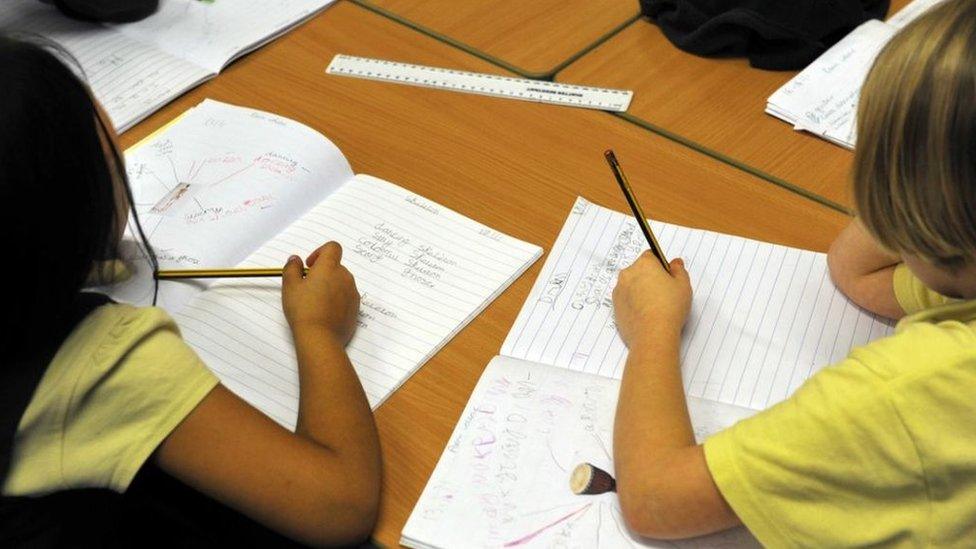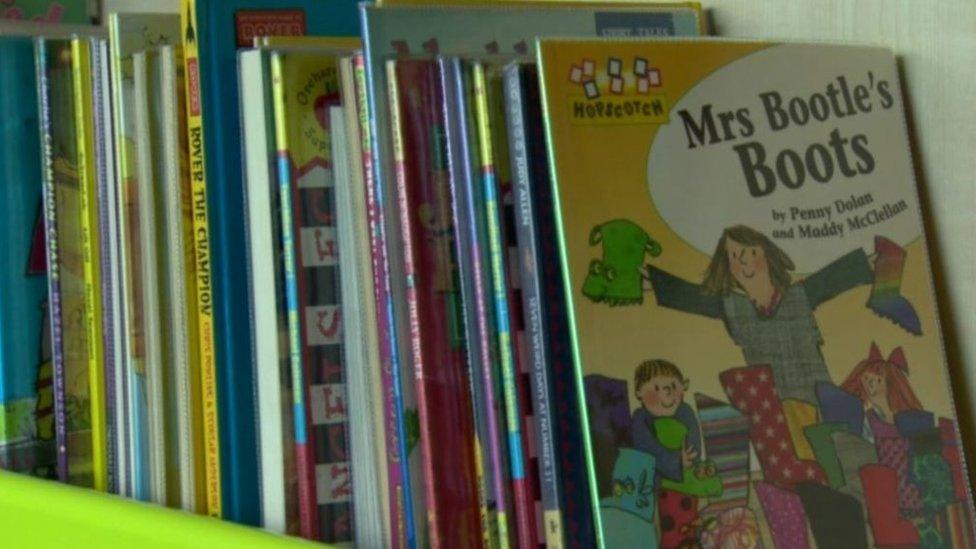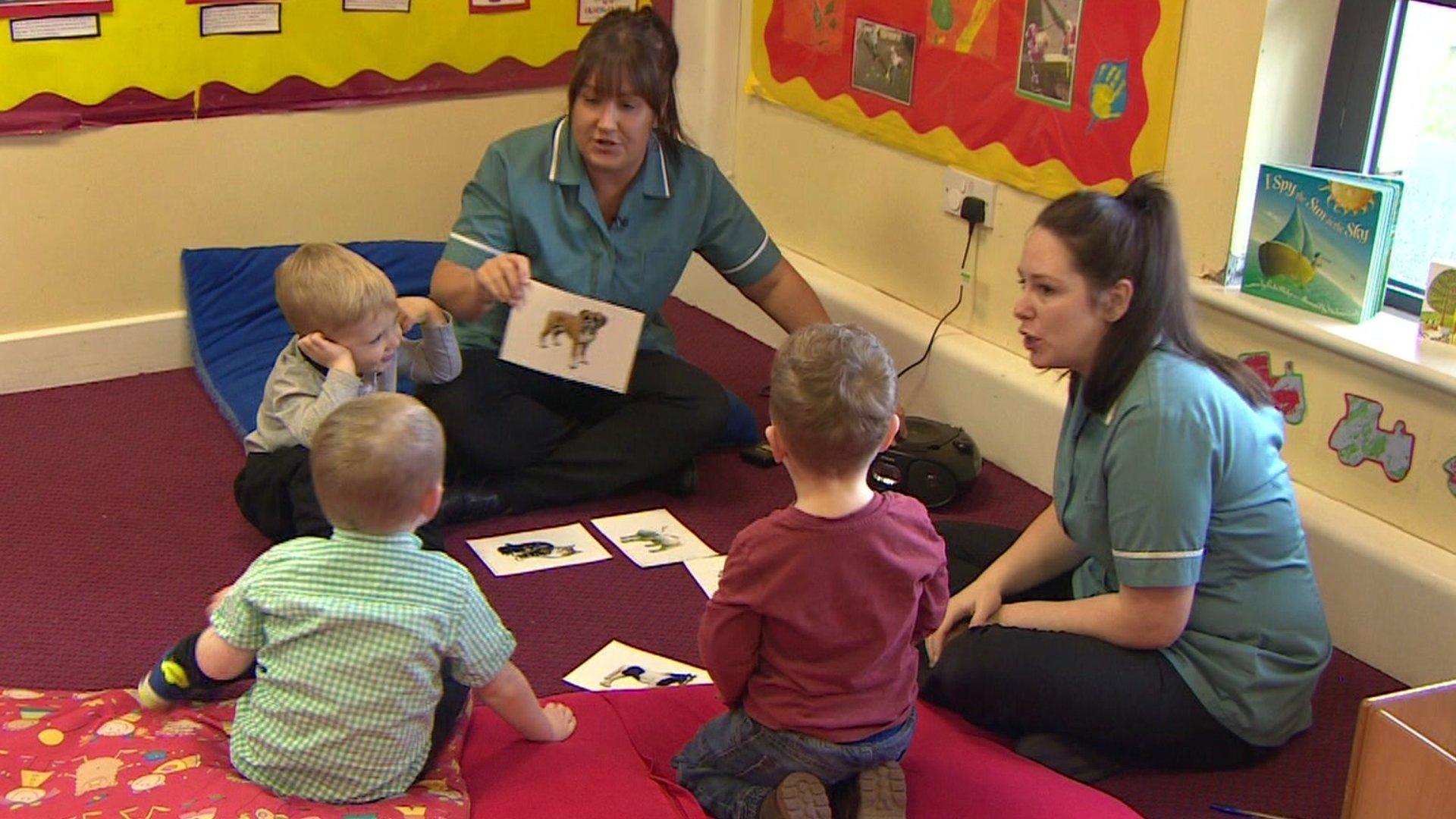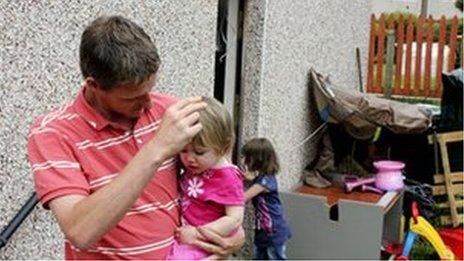NI Teachers concerned by children's speech
- Published

92% of teachers surveyed said children who start primary one with delayed speech and language skills can fall behind
Primary school teachers in Northern Ireland are concerned about the number of children starting school who struggle with their speech.
More than 90% of teachers surveyed by Save the Children said children who start primary one with delayed speech and language skills can fall behind.
Three quarters said school starters often struggle to use full sentences.
The survey also found children from poorer families are likely to struggle with language development.
Struggle to concentrate
In its own research, Save the Children found that in some of Northern Ireland's most disadvantaged communities, "40% of children entering primary school demonstrate speech, language and communication difficulties - and those who struggle in toddlerhood may never catch up".
Other findings included:
89% of teachers surveyed said children with speech and language delays struggle to concentrate
Almost two thirds of teachers said that children with speech and language delays were less likely to enjoy school
70% of teachers said children in their class struggled to understand simple instructions
The executive is currently seeking views on the draft Programme for Government, which aims to give all children and young people the best start in life and aims to reduce educational inequality.
The charity says that while the programme recognises that early years provision is critical, this survey shows teachers think there needs to be a "greater focus and investment into pre-school years to stop the achievement gap from developing."

Three quarters of teachers surveyed said they often see children struggling to speak in full sentences when they start school
Peter Bryson, Save the Children's Head of Northern Ireland, said: "The executive has acknowledged the role that early years provision could make in reducing the educational achievement gap and it's encouraging to see this is part of the government's agenda."
Mr Bryson said the survey was a snapshot of existing issues, and that teachers felt more resources were required.
"Teachers are telling us that when children start primary one with speech and language delays, we know from our work that this does have an impact on a child's future, putting them at an unfair disadvantage," he added.
- Published17 February 2016

- Published5 September 2012
